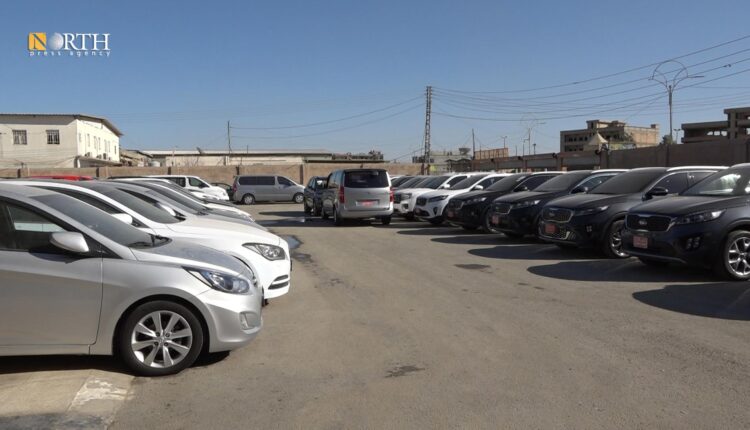Kurdish Authorities Update Vehicle Import Law to Align Efforts with Syrian Government
By Kardo Roj
QAMISHLI, Syria (North Press) – The Autonomous Administration of North and East Syria (AANES) on Saturday announced amendments to its vehicle import regulations, allowing cars manufactured as early as 2012 to be brought into its territories under a structured customs system.
In a public statement, the AANES described the move as part of a broader initiative aimed at “unifying efforts with the Syrian government” and reaffirming its “commitment to the unity and territorial integrity of Syria.” The revised law, which takes immediate effect, provides detailed customs fees based on vehicle manufacturing year, while offering exemptions for essential service and agricultural vehicles.
Under the amended policy, vehicles manufactured between 2012 and 2015 are subject to a customs duty of $1,400 USD. Those produced between 2016 and 2020 face a $1,900 fee, and vehicles made between 2021 and 2025 are required to pay $2,400. Notably, the regulation exempts ambulances, heavy and medium machinery, harvesters, tractors, and equipment used in the agricultural sector, as well as trucks and trailers.
The AANES, which governs large parts of northeast Syria through a decentralized administrative structure, has increasingly developed institutional frameworks to support local economic activities and facilitate services for residents in areas secured by the Syrian Democratic Forces (SDF). These administrative decisions often reflect efforts to maintain functionality and interconnectivity within Syria while enhancing self-sufficiency.
The update comes months after Syria’s caretaker Minister of Transport, Bahaa al-Din Sharab, issued a decree permitting the import of all vehicle types, with the exception of those older than 15 years. The parallel regulatory moves indicate a growing administrative synchronization between authorities in northeast Syria and institutions in Damascus, especially on issues affecting citizens across different regions.
Local car dealers in Qamishli expressed cautious optimism about the revised law, noting that the new regulations could open up the market and improve vehicle access for residents. “It’s a step that simplifies procedures and reduces ambiguity,” said one dealer, who asked not to be named due to the sensitivity of cross-regional policies.
While the AANES remains distinct in its governance model, such developments highlight its efforts to streamline administrative affairs in a manner that facilitates movement and commerce, especially amid ongoing economic challenges in Syria.
The implementation process of the revised vehicle import law is expected to begin in the coming days, with further clarifications anticipated from the AANES’ transportation and customs departments.

